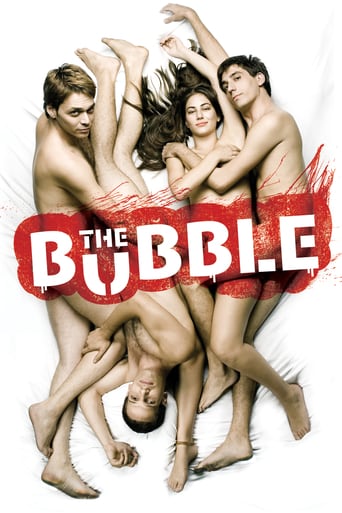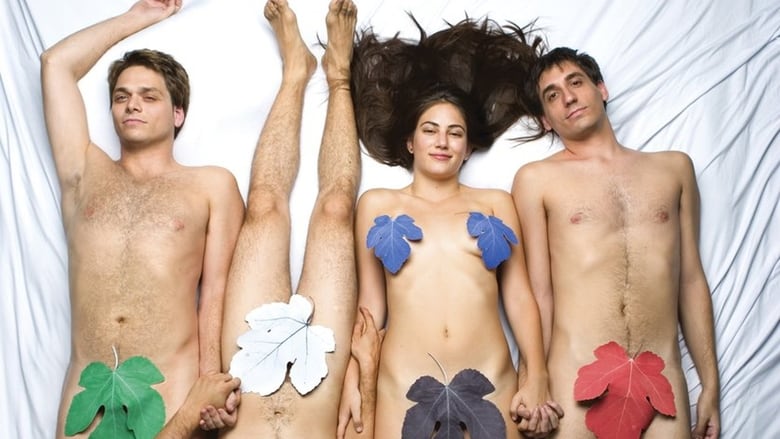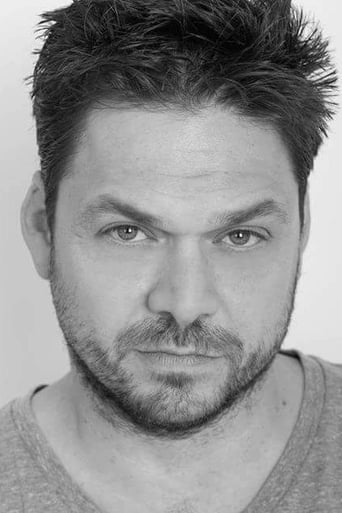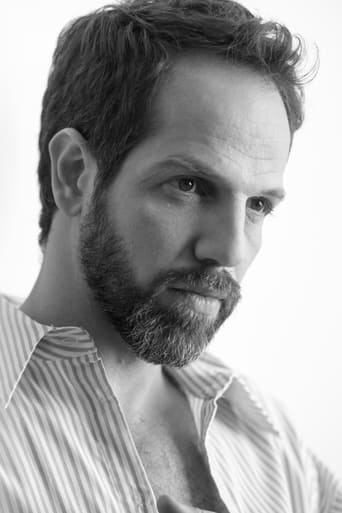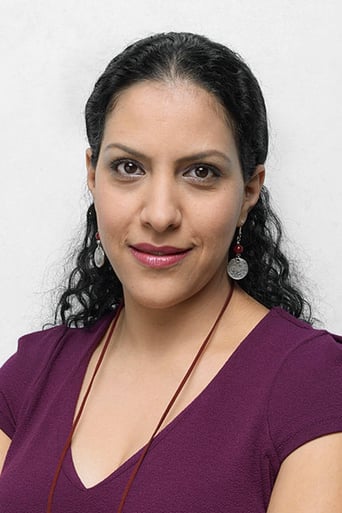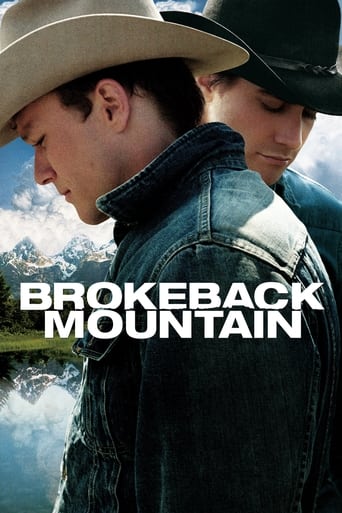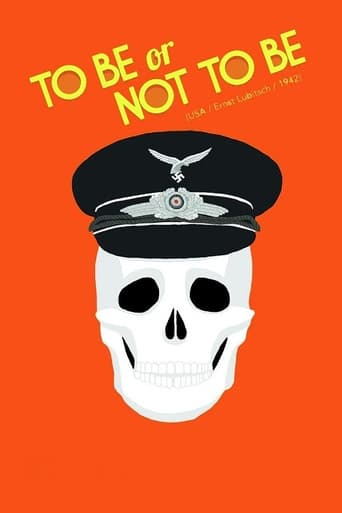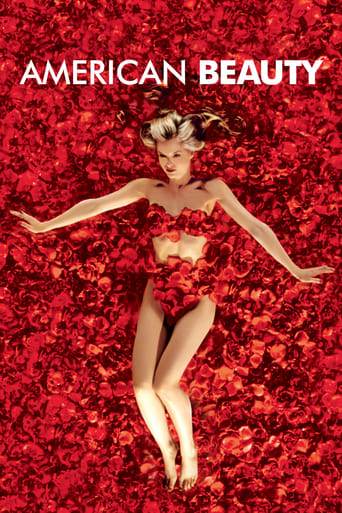The Bubble (2006)
The movie follows a group of young friends in the city of Tel Aviv and is as much a love song to the city as it is an exploration of the claim that people in Tel Aviv are isolated from the rest of the country and the turmoil it's going through. The movie looks at young people's lives in Tel Aviv through the POVs of gays and straights, Jews and Arabs, men and women.
Watch Trailer
Free Trial Channels
Cast


Similar titles
Reviews
What a waste of my time!!!
Sorry, this movie sucks
Absolutely amazing
All of these films share one commonality, that being a kind of emotional center that humanizes a cast of monsters.
Since the advent of literature, people of all nationalities have been fascinated and easily touched by accounts of unhappy love. Even more fascinating have always been the tales of impossible love, love that cannot be. The Israeli filmmaker Eytan Fox' latest film The Bubble" is about that. And then it is also not. The title of the film refers to the bubble" that is Tel-Aviv set against the background of the political realities of Israel. The country's cosmopolitan and unofficial capital city doesn't have much in common with Nablus, a city in the Palestinian West Bank which also features in the film. It doesn't have much in common with the tense and hateful atmosphere at the Palestinian checkpoints. Actually, it doesn't seem to have much in common with anything surrounding it. The bubble" of Tel-Aviv allows people to have a lifestyle which isn't much different from what you may expect in any Western city. Teenage girls looking for Britney Spears' records, a lifestyle magazine editor looking for a sexy cover for his next issue, trendy people sitting in trendy cafes discussing trendy things over cups of cappuccino and other similarly trendy drinks, while those at home are watching the local edition of Pop Idol. It is this bubble" that also has the potential to lull one's mind into a false sense of reality.The film evolves around the lives of three young Israelis who share a flat and, for the most part, try to stay out of politics. Yelli, the camp owner and manager of Orna & Ella", a hip cafe, rarely leaves the city and prefers not to think about the crap that surrounds them". Noam, a soft and easygoing employee of a slightly avantguard record store, seems to be equally unwilling to engage in long political discussions and contemplations. Lulu, the only female of the lot, is on the contrary linked to the Israeli Left, although her political activities seem to be confined to raves against the occupation". Yelli and Noam naturally don't object to participating in these. Lulu and her political friends make t-shirts with the rave's logo, put up posters and hand out booklets advertising it in the neighbourhood. Their main concern seems to be that there are never any actual Palestinians participating and that the police might come and spoil all the fun for them again. The closest they come to an actual confrontation is when they get into a scuffle with some not so Palestinian-friendly locals who try to prevent them from handing out the leaflets. In other words, predictable products of the bubble".The opening scenes of the film take us to a checkpoint on a road to Nablus where we also find Noam doing his reserve duty. A group of Palestinians is being thoroughly checked before entering Israel, among them a pregnant woman who suddenly goes into labour and gives birth to a stillborn child despite the best efforts from Noam and the doctor who eventually arrives in an ambulance. The woman is comforted by a young man who later turns up on Noam's doorstep in Tel-Aviv with his ID which the latter obviously dropped during the ordeal on the border. His name is Ashraf, he's Palestinian and he's gay. And he hasn't just come to hand back the ID, he has come to see Noam. Without a permit to live in Israel and despite the initial hesitation from Noam's flatmates he stays. He soon gets a Jewish name and a job at Yelli's cafe. Having grown up in Jerusalem with Hebrew, he doesn't have an Arabic accent which makes it possible for him and his newly found friends to conceal his identity. The sky is light blue and the air is sweet. But it cannot last. For he has become part of an equation which was never meant to be.At one point, Noam and Ashraf watch a play called Bent about two prisoners in a Nazi concentration camp who have a love relationship which can never become physical or visible to the surrounding guards. They find a way of being together on another level, a metaphysical one, a level where no one else has access. This is also where our couple arrives in the end. And it couldn't have been much different for them, not in today's Israel.The Bubble" is a political statement about the bubble that bursts when confronted with the political realities of today's Israel set against the background of a beautiful and awkward love story involving an Israeli and a Palestinian, the impossible love story in a divided world where no such things as compromise or other colours than black and white exist. The Bubble" is also a beautiful film about people, gay and straight, inhabiting that strange city, Tel-Aviv, shown through the eyes of people who really care about them. The film's premise may have its flaws and the fatal chain of events may seem somewhat construed, but its strong message and emotional impact will not leave you untouched.
This film is a complete re-imagining of Romeo and Juliet in Tel Aviv and Nablus. The lovers are one from Tel Aviv et the other from Nablus. There is a border between them, and a constant state of war with the Israeli army ever present everywhere and the Palestinian militants everywhere else with their bombs. The situation is bleak enough. We can imagine love in that enormous loveless trap. But the film goes several light years further by imagining the two lovers are gay, Noam from Tel Aviv and Ashraf from Nablus. To be gay is accepted in Tel Aviv. It is off limits in Nablus. The conflict between the two peoples, the two communities is thus doubled with a conflict between two cultures, two ethics. But this could even be livable if the war did not bring some extra dimension. Ashraf's sister is going to get married to a militant activist in Nablus. Ashraf finally tells his sister about his being gay. She cannot accept it but accepts to speak about it later. From the wedding itself the newly married husband sends a commando into Tel Aviv to set up a bomb attack. It takes place in a café in Tel Aviv and one friend of Noam's is severely wounded. Bad enough. The Isareli army sends a commando to Nablus to arrest the person responsible for this attack, but it turns sour and the newly married wife is shot dead in the street. The funeral follows the wedding. The husband and widower volunteers for a suicide bomb attack. Ashraf volunteers to take his place. The exiled lover comes back to Tel Aviv to die and kill a few people to avenge his sister. He arrives at a diner managed by some friends of Noam's. But Noam sees him and gets out to speak to him. Ashraf has moved back to the middle of the street and he detonates his bomb when Noam reaches him in the street. The vengeance reunites the two lovers in death. We thus have the dual conflict but we do not have the Prince of Verona, a neutral character that can impose peace, or even worse the Prince seems to have chosen sides and to be on the side of Israel. The game is entirely false and death is sure on both sides. But the dimension of impossible love is all the stronger because it is redoubled by a play in the film, a play that shows love in Auschwitz, between two prisoners, one wearing a yellow star and the other a pink triangle. This is both strikingly strong and breathtakingly shocking: gay love in Auschwitz. What comes out of the film is that over there in Tel Aviv or Nablus love is impossible. The film is thus a denunciation of the conflict in Palestine that cannot but continue though it has no reason to even exist though it has thousands of reasons to go on. We should never have let Great Britain deal with the region a long time ago. Today we have to find a solution in which no one will be humiliated. This will only be able to succeed if everyone comes together in order to find a lasting solution. But so far everyone is trying to avoid that general confrontation and discussion preferring bilateral manipulations. So suffering will go on and love will be forbidden, of course not sex since children are needed for the war to go on: so let's procreate more and more little soldiers. But love is just an extra-terrestrial concept.Dr Jacques COULARDEAU, University Paris Dauphine & University Paris 1 Pantheon Sorbonne
"The Bubble" is an effort to make a gay Romeo & Juliet type of story with an Israeli and a Palestinian, although it seems to come at it by way of "Friends" or "Beverly Hills 90210." The characters are shallow and trite as are the dialog and plot line. The movie seems torn between fluff and depth. On the one hand there is a pointed effort at being shallow as (in one example of many) some minor characters even ask questions that invite development of insight into the conflicts at hand, and get answers like, "Hey, we're here to make a poster for a rave against the occupation. Don't get political!" Beyond the obvious absurdity of such a line, it's just one of many ham-fisted signals that the movie is just as hollow and insubstantial as its title suggests. On the other hand, the movie's main pretension to depth follows the lovers to a presentation of "Bent" a play about gays in a Nazi labor camp. The scene on stage is awkwardly rushed, undermining its erotic power (understandable given the constraints of film-time, but still this could have been edited to much better effect.) and comes off as flimsily as the rest of the film. Too bad. This play deserves much better.The characters are so one-dimensionally cartoony some even have names that telegraph their entire (though the word seems inappropriate here) substance. The aggressive soldier from the crack Golani brigade is named "Golan." The militant Palestinian is named "Jihad." The striving-for-chic faghag roommate is "Lulu." Anyone familiar with the checkpoints and life in Palestine, whether from real life or documentaries will find the checkpoint scenes as absurdly unreal as well, the rest of this fluffy fantasy. When a Palestinian woman goes into the fastest labor on record Israeli soldiers are solicitous and helpful, an ambulance shows up in minutes. (The outcome of the birth serves to show the Palestinians as unappreciative of Israeli beneficence and even downright paranoiac.) Altogether the checkpoint is shown as a mere nuisance, not the series of bone-numbing, soul-crushing, humiliating obstructions with no regard for medical care or necessity in cases of birth, death, or severe illness. Ashraf, the Palestinian lover, seems to get through from Nablus to Tel Aviv with no problems, no papers, no hassles. He just shows up whenever he likes. When the Israelis want to get through it is much more of a challenge involving a scheme worthy of Lucy Ricardo.Against the backdrop of nice, supportive Israelis and surly homophobic Palestinians we move to a resolution that is utterly lacking in motivation or purpose except as a painfully obvious dramatic device to milk sympathy for the forbidden lovers.Gay Israeli-Palestinian romance has been handled on stage with much more skill and depth as in Saleem's "Salaam/Shalom" so this film is hardly even as groundbreaking as some people would like to think.Gloriously bad films like the works of Ed Wood -- at least have some striking idiosyncrasy to distinguish them. This one doesn't even have that going for it. Most of the sound track sounds like Simon and Garfunkel on quaaludes, and even with the weird oedipal touches to the gay sex scenes, the general incompetence that pervades this movie plays out like a mediocre TV-movie-of-the-week.
It's difficult to not have a liking for Israeli director Eytan Fox and for his movies, which describe the life in the middle east and the inherent problems gay people can have in these regions. Besides he also gave voice to the young generations, and to the remarkable part of them, who really need PEACE and who want to take no further notice of a war that for too much time marked the existences of people, both in Israel both in Palestine. These reasons, in my opinion, are sufficient to consider Fox a noteworthy director, even when his feeling for the melodrama is a tad out of control. However the fans of his movies (that he realized on team with Gal Uchovsky, his producer, co-screenwriter and also life companion) seem to not being vexed by this, since his new feature, THE BUBBLE (HA-BUAH), is having the same success of the previous YOSSI & JAGGER and WALK ON THE WATER. Announced as a contemporary gay version of "Romeo & Juliet", set in the present day Tel Aviv instead of Verona and with two men (one Israeli and the other Palestinian) at the place of the two Shakespearean young lovers, the film actually is quite different from that or, better, it's also something else. In fact the bubble of the title is the world apart in which the leading man, Noam, played by the Fox regular Ohad Knoller (Yossi in YOSSI & JAGGER, but I must confess I miss Jagger, the astonishing Yehuda Levi!) and his two co-tenants, a guy and a girl, chose to live. Around thirty-years-old, restless, witty and firm (despite the protagonist just spent a period as national service in a checkpoint on the frontier with the Palestine) to live a life that won't be only made of war. The two guys are gay and along with the girl they have established a trio in which they brotherly love and support each other. Their lives are destined to change when Noam falls in love with Ashraf (the TV star Yousef 'Joe' Sweid) a young Palestinian who came to live in Tel Aviv. The laws so far in force among the group are neglected, but not the will to aid one friend. Still it won't be easy for Noam and his friends, 'cause Ashraf is clandestine in Israel and in the meantime his family, who lives in Palestine and doesn't know he's gay, is looking forward to settle his wedding with a very beautiful girl, who is a relative of Ashraf's beloved sister bridegroom-to-be, who he is also a terrorist and he will have a strong liability in the development of the plot, with consequences not just for the two men. Because the prejudices against the homosexuality and the peace (interesting dualism, if not automatic) are stubborn and so the tragedy is unavoidable. Even if the film focus on the obstacles the relationship between Noam and Ashraf meets with, it doesn't the overlook the other characters, which turn out well written (for example Golan, the boyfriend of Yelli, Noam's fellow tenant, introduced as a lively boor, and then disclosed as a sweeter and more open minded person) and aptly performed (besides the two leads, we mustn't disregard the funny Zohar Liba and the lovely Daniela Virtzer, the girl of the gang; moreover LATE MARRIAGE's star Lior Ashkenazi appears as himself in a cameo). It also melds the gloomy tones with the more brilliant ones, even if the director can't do without a melodramatic conclusion. I watched this movie more than a month ago and in the meantime I often thought about it, proof that Fox and his pal have a knack to strike home.

